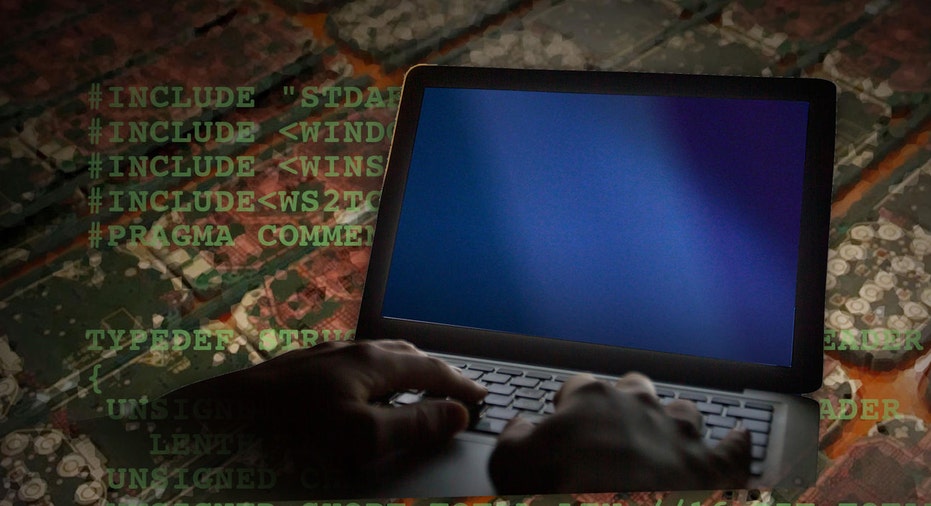Decoding the Encryption Controversy

Where would the media be if it suddenly had to base its reporting and commentary on actual information and analysis, instead of relying on sensational headlines and divisive rhetoric that pits one party or group against another as click-bait? A lot poorer, I would think.
Case in point: the firestorm over encrypted user data and communications that reignited in the wake of the deadly Islamic terrorist attacks in Paris. What’s been billed as an epic battle between Washington and Silicon Valley over security concerns versus privacy rights in screaming headline after headline is nothing of the kind.
If you went solely by the grossly over-simplified sound bites, you’d think the battle lines have been drawn something like this: Silicon Valley has built encryption capability into devices and apps that enable users to protect their data and privacy against cybercriminals, the NSA, and what have you.
The feds, meanwhile, are concerned that terrorists are “going dark,” meaning they’re potentially using secure apps like Apple’s iMessage and FaceTime to communicate, so government officials are pushing for tech companies to create backdoors into their programs that intelligence agencies can utilize, should the need arise.
In reality, political leaders are in no way aligned on the subject – not even along party lines.
While the Obama administration, most GOP presidential candidates, and Senators Dianne Feinstein (D-CA) and John McCain (R-AZ) are all in the “anti-encryption” camp, congresswoman Nancy Pelosi (D-CA) and Senators Rand Paul (R-KY) and Bernie Sanders (D-VT) have come out in favor. Meanwhile, democratic front-runner Hilary Clinton is uncomfortably trying to straddle the line. A political mash-up if there ever was one.
Likewise, Silicon Valley companies couldn’t be more divided on users’ privacy. Of course, you’d be hard-pressed to get any top executives to go on the record saying anything even remotely anti-security or privacy. They’d all stand squarely behind the public position of the Information Technology Industry Council (ITI), which released this statement just last week:
“Encryption is a security tool we rely on every day to stop criminals from draining our bank accounts, to shield our cars and airplanes from being taken over by malicious hacks, and to otherwise preserve our security and safety. Weakening encryption or creating backdoors to encrypted devices and data for use by the good guys would actually create vulnerabilities to be exploited by the bad guys, which would almost certainly cause serious physical and financial harm across our society and our economy. Weakening security with the aim of advancing security simply does not make sense.”
But the truth about where the giants of tech stand on user privacy is another matter entirely. No organizations on earth have exploited users more than Google (NASDAQ:GOOGL) and Facebook (NASDAQ:FB) have in their zealous quest to boost ad revenues by providing users’ personal data – demographics, searches, email and location, among others – to an ever-growing list of digital advertisers.
It’s more than a little ironic that so many people seem worried about the NSA surveillance program that Edward Snowden brought to light, when in reality, users of Google’s popular Android operating system, Chrome browser, Gmail, Maps, Photos and a host of other “free” cloud services actually pay a very steep price in terms of the information they allow Google to take advantage of.
Apple (NASDAQ:AAPL), on the other hand, stands alone as the only credible voice among the Valley’s tech leaders in full support of users’ security and privacy rights, and against weakening encryption by providing a backdoor that’s ostensibly just for the “good guys.”
As CEO Tim Cook warned in a speech last June, “Some in Washington are hoping to undermine the ability of ordinary citizens to encrypt their data. We think this is incredibly dangerous,” he said. “If you put a key under the mat for the cops, a burglar can find it, too. Criminals are using every technology tool at their disposal to hack into people’s accounts. If they know there’s a key hidden somewhere, they won’t stop until they find it.”
While the media would have you think this is all about Washington versus Silicon Valley or Fourth Amendment privacy rights versus our safety in the face of global terrorism, nothing could be further from the truth. And while the issues may sound complicated, they’re really quite simple.
Cook is absolutely right on this. The more commerce, communicating, sharing, living and working we do online, the more we depend on encryption to keep the information that matters most to us safe and secure. We simply cannot afford to undermine what’s quickly becoming our way of life in an increasingly digital world.
It’s still a free country, and while you may choose to give up your privacy, mandating it with anti-encryption legislation will hamstring American companies in a global market, open a backdoor that will inevitably be exploited by the “bad guys” and ultimately make us all less safe and secure.
Besides, there is no hard evidence that terrorists are actually using encrypted communications. In other words, what we’re really talking about is yet another hysterical overreaction and regulatory overreach that will do far more harm than good, just like Sarbanes-Oxley, Dodd Frank and the FCC’s net neutrality rules. That’s all there is to it.



















